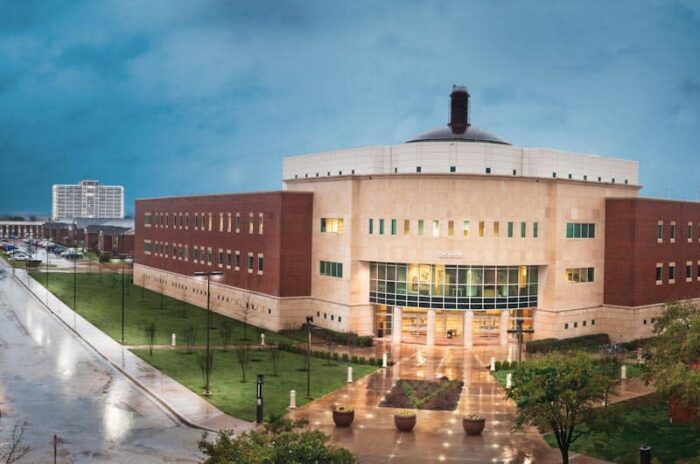A Community-Based Approach to Building the Capacity of Physics Teacher Preparation

The Department of Physics & Astronomy along with the Department of Curriculum & Instruction has been awarded $74,941 for a Capacity Building project within the Robert Noyce Teacher Scholarship Program.
The scholarship will ready the department for a Phase-I Noyce Scholarship to be jointly administered by the College of Science & Engineering and the College of Education & Human Services. The different projects will relate to teacher education within the Department of Physics & Astronomy and the Department of Curriculum & Instruction, such as the shift of calculus-based physics courses to studio mode and the creation of a learning assistant program within those classes, a new master's program in physics for in-service high school physics teachers, and the Texas Teacher Residency Program, which provides stipends for students to be placed in Science Technology Engineering Mathematics (STEM) classrooms with mentor teachers while obtaining an education master's.
“I am very excited that our NSF Noyce Capacity Building Project has been funded,” said William Newton, assistant professor in the Department of Physics & Astronomy. “This project will further our capacity to prepare quality physics teachers by creating a community of practice that will develop instructional materials for high school and college physics classes. The community will be created by bringing together the Department of Physics & Astronomy’s undergraduate learning assistants, in-service physics teachers in our new master's program, and students in the Texas Teacher Residency Program run by the Department of Curriculum & Instruction.”
A Teacher-in-Residence will help the project team create the community from students and teachers involved in each project. They will base the community around the development of educational materials for high school physics and college introductory physics courses that address areas of conceptual difficulty, provide common teaching resources, and provide opportunities for participants to perform action research in their classrooms to measure the learning outcomes of those components. The departments also plan to continue the ongoing reformation of the physics teacher preparation program to allow for physics teachers to efficiently complete the program via the courses that use the best practice pedagogy and to lower the barriers to recruitment.


